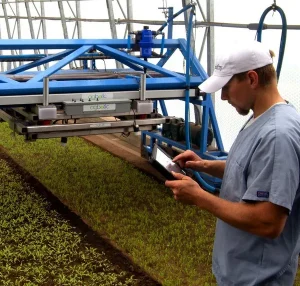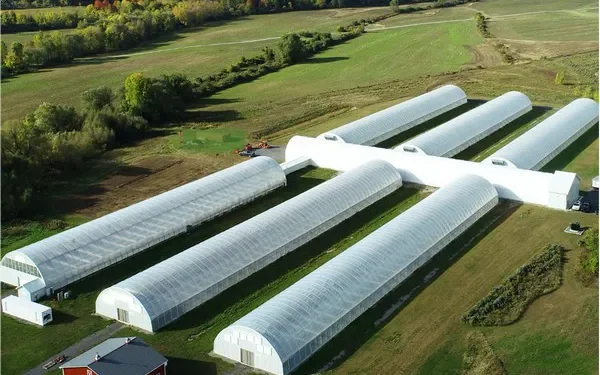NEW YORK – Agbotic, a pioneering firm in organic agriculture, is revolutionizing greenhouse farming with the integration of artificial intelligence (AI) into their operations. Founded by tech entrepreneur John Gaus, the company is committed to enhancing efficiency and crop quality through advanced AI technologies.
“We leverage AI to fine-tune precision robotics and optimize our greenhouse operations,” explains John Gaus, emphasizing their commitment to sustainable farming practices and economic viability.
For Agbotic, the journey towards integrating AI into agriculture began with a profound environmental mission. “Our focus was on tackling operational and capital expenses (Opex and Capex) which dominate agricultural economics,” John remarks. By innovating greenhouse design and deploying precision robotics, Agbotic has successfully reduced facility costs while enhancing productivity.
A core principle at Agbotic is organic, chemical-free farming that competes favorably with conventional methods. “If we cannot produce organically and sustainably at competitive costs, it’s not a viable solution,” states John. This philosophy underscores their dedication to producing high-value, high-quality crops that meet rigorous organic standards.

Despite the allure of vertical farming technology, John cautions about its economic viability. “Vertical farms, while technologically impressive, often struggle with profitability due to high production costs,” he points out. Comprehensive studies comparing greenhouse and outdoor cultivation have revealed similar challenges, highlighting the importance of addressing cost efficiency in all agricultural innovations.
The application of AI at Agbotic primarily revolves around data analytics. “AI processes vast datasets to enhance plant yield and quality,” John explains. This data-driven approach allows Agbotic to continually optimize environmental controls and plant biology, thereby maximizing production efficiency.
“Our greenhouse design is another key innovation,” John notes. Tailored to local climates, the greenhouse minimizes energy consumption while maintaining optimal growing conditions. This efficiency is crucial for sustainable agriculture, reducing both operational costs and environmental impact.
Recently expanding into spinach cultivation, Agbotic has demonstrated its ability to innovate within challenging crop environments. “Spinach traditionally faces hurdles in hydroponic and outdoor farming due to pesticide use and economic feasibility,” John reveals. “Our greenhouse model has successfully addressed these issues, producing spinach with strong economic performance and exceptional quality.”
Looking ahead, Agbotic plans to export its sustainable farming model globally. “We’re exploring projects in the US and abroad, such as Ireland, to replicate our success,” John states. By licensing their technology to partners worldwide, Agbotic aims to empower other farms to adopt sustainable practices and achieve economic sustainability.












